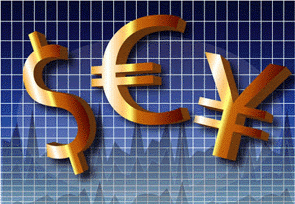
The NZDUSD opens at 0.7445 (mid-rate) this morning.
The NZDUSD is little changed from Friday’s close with the release of Europe’s 2014 GDP data supporting global risk appetite.
Euro-zone economic growth picked up in the fourth quarter, gross domestic product advanced 0.3% (expected 0.2%).
The star performer was once again Germany whose GDP advanced 0.7% (expected 0.3%) helping the Euro-zone GDP achieve 0.9% for 2014.
Global equity markets with the Nikkei being the exception had a strong close to the week - Dow +0.26%, Nikkei -0.37%, Shanghai +0.96%, FTSE +0.67% DAX +0.40%, CAC +0.70%.
Gold prices closed out the week slightly lower at $1,227 (-$1.67), Oil prices strengthened on Friday closing up 3% at $52.78 a barrel.
The current indicative mid-rates are:
NZDUSD 0.7445
NZDEUR 0.6532
NZDGBP 0.4833
NZDJPY 88.40
NZDAUD 0.9575
NZDCAD 0.9278
Data releases today:
10:45 - Retail Sales q/q
- Core Retail Sales q/q
---------------------------------------------------------
To subscribe to our free daily Currency Rate Sheet and News email, enter your email address here.
----------------------------------------------------------
Dan Bell is the senior currency strategist at HiFX in Auckland. You can contact him here »
Daily exchange rates
Select chart tabs
1 Comments
The star performer was once again Germany whose GDP advanced 0.7% (expected 0.3%) helping the Euro-zone GDP achieve 0.9% for 2014.
A dirty recovery? Time to ditch the BMW?
Germany imported more than 12 million tons of coal from Russia in 2014 - the biggest volume in 9 years, despite calls for energy independence and a switch to renewables.
Coal imports from Russia increased 6.6 percent in 2014, at 12.6 million metric tons, Germany’s Federal Statistics Office reported Friday. This is about a third of the country’s total coal imports.
At a time when geopolitical relations between the two countries are strained, Germany continues to pump money into a country that the US and other European countries are bent on economically isolating.
Poland, also a Moscow naysayer, is Russia’s second biggest coal importer in the EU.
Another country that had sworn off Russian coal, but ended up buying the cheap energy to heat homes and factories, was Ukraine. Kiev bought some 50,000 metric tons in December. Read more



We welcome your comments below. If you are not already registered, please register to comment
Remember we welcome robust, respectful and insightful debate. We don't welcome abusive or defamatory comments and will de-register those repeatedly making such comments. Our current comment policy is here.